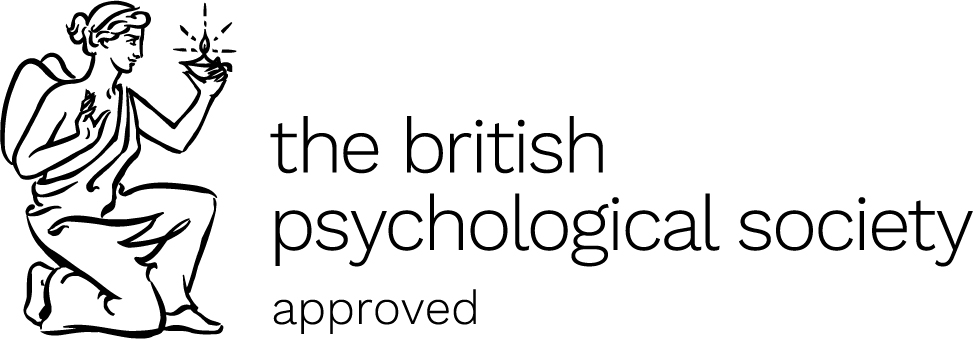
Course Brief
Essential Supervision Skills (BPS Approved Certificate in Clinical Supervision) meets the training standards required for Chartered Psychologists to confer eligibility for the British Psychological Society’s Register of Applied Psychology Practice Supervisors (RAPPS).
This practical two day course is ideal for those who supervise the clinical and casework of others. The two days combine an overview of the supervision process with an exploration of the practical problems which arise within it. With lots of opportunities for asking questions, sharing your supervision problems and ideas and networking with your colleagues this training is absolutely essential for those already delivering supervision or those wishing to train in it.
Click here to book the first three modules of the Certificate at once and save.
Essential Supervision Skills (BPS Approved Certificate in Clinical Supervision) meets the training standards required for Chartered Psychologists to confer eligibility for the British Psychological Society’s Register of Applied Psychology Practice Supervisors (RAPPS).
This practical two day course is ideal for those who supervise the clinical and casework of others and/or those wishing to train in it.
The course is designed to provide you with an up-to-date theoretical overview of clinical supervision along with its practical application within a range of practice environments. The Certificate will draw heavily on psychological theories of therapy, learning and management including the Kolb Learning Cycle and Parallel Process models.
The two days combine an overview of the supervision process with an exploration of the practical problems which arise within it. A particular focus will be on common supervision problems and dilemmas and how they can be successfully addressed.
With lots of opportunities for asking questions, sharing your supervision problems and networking with your colleagues this training is absolutely essential for those already delivering supervision or those wishing to train in it.
Learning outcomes and objectives:
- Delegates will have an understanding of both the functions and commonly used models of clinical supervision from Proctor to Hawkins and Shohet, from didactic approaches to solution focused ones
- Delegates will understand how to structure supervision to meet their own and their supervisees' needs and build a productive relationship between supervisor and supervisee
- Delegates will learn how to make supervision stimulating and to balance informal and formal elements in supervision
- Delegates will practice the use of a number of supervision protocols and scripts and explore their adaption to their own supervision circumstances
- Delegates will understand the different and interrelated nature of supervision, mentoring and consultancy
- Practical issues from setting, frequency and duration, contracts and record keeping will be addressed
- Delegates will explore common supervision problems and dilemmas and practice their resolution
Amongst others, the following issues will be explored and discussed:
- What Exactly Should I Be Doing As A Supervisor?
- A range of practical problems are explored and resolved:
- Should or shouldn't there be a line management relationship between supervisor and supervisee?
- How do I give feedback in supervision?
- How do I balance professional responsibilities with a developmental/supportive role?
- What about supervision records?
- What is the role of confidentiality in supervision?
- What Should My Supervision Meetings Consist Of?
- How to deal with common supervisory dilemmas such as:
- The supervisee who does not want to develop their skills
- What to do with third party information regarding supervisees' work
- How to deal with caseload management
-
The supervisee who resists all aspects of supervision.
- BOOK FIRST 2 days as a LIVE COURSE plus recordings:
Pay in total only £495 + vat (instead of RRP £530 + vat)
Duration: 2 days
CPD Hours: 14
Attendance: Live on Zoom or via Full Recording
BOOKING OPTIONS:
Accreditation for BPS Approved Certificate in Clinical Supervision
SDS Accreditation in Clinical Supervision, Level 1 (Foundation) is the level of accreditation you obtain by attending the SDS Essential Supervision Skills course (BPS Approved Certificate in Clinical Supervision) - this course via live training or live/recorded webcast.
This level of accreditation gives you a Certificate of Attendance, as well as access to the course materials and other resources, and enables you to state in your CV that you have SDS Accreditation in Clinical Supervision Level 1 (Foundation).
Your accreditation currently lasts for 3 years, after which you cannot make the above statements and access course resources. This level of accreditation is renewable by continuing SDS training in Clinical Supervision to higher levels of Accreditation and afterwards - attending the follow-up courses.
SDS Accreditation in Clinical Supervision, Level 2 (Assessed Academic Competence) means you have undertaken training as in Level 1, and also passed the online exam.
This level of accreditation gives you a Certificate of Completion with Assessed Academic Competence, as well as access to the course materials and other resources. It also enables you to state in your CV that you have SDS Accreditation in Clinical Supervision Level 2 (Assessed Academic Competence) and can use qualification, CSAccred.(AAC) in your title.
Your accreditation currently lasts 3 years. This level of accreditation is renewable by continuing SDS training in Clinical Supervision to higher levels of Accreditation and afterwards - attending the follow-up courses.
SDS Accreditation in Clinical Supervision, Level 3 (Advanced) is as Level 2, with the addition of completing an Advanced Supervision Course covering Clinical Supervision for Supervisors, Group Clinical Supervision and Conducting Internet Based Supervision.
This level of accreditation gives you a Certificate of Completion (Advanced) with Assessed Academic and Clinical Competence, as well as an access to the course materials and other resources. It also enables you to state in your CV that you have SDS Accreditation in Clinical Supervision Level 3 (Advanced) with Assessed Academic and Clinical Competence and use the qualification, CSAccred.(Advanced) in your title.
Your accreditation currently lasts 3 years. This level of accreditation is renewable by continuing SDS training in Clinical Supervision to higher levels of Accreditation and afterwards - attending the follow-up courses.
Click here to book the first three modules of the Certificate at once and save.
SDS Accreditation in Clinical Supervision, Level 4 (Clinical Proficiency) is as Level 3, with the addition of:
- Submitting a project of an acceptable standard (3,000 words). The purpose of the project is to illustrate that you can apply the academic knowledge gained from the course to practical clinical supervision situations. The project should follow one of the formats below:
- A small quantitative research project examining an aspect of the supervision process. Prior experience and knowledge of simple experimental design and statistical analysis is required. The clinical supervision field is largely “a green field” site with multiple unaddressed questions both regarding process and especially outcomes. The “write up” should BROADLY follow the format indicated in university guides to writing up psychology research projects.
OR - A qualitative report comparing either the published research and/or content of the SDS Level 1 course to the delegate’s own experience as a supervisor.
- Similarities and differences between research/academic content and supervisor experience should be highlighted and discussed.
- External (e.g. organisational/professional body) and internal (e.g. emotional/ethical) constraints on supervisor behaviour should be illustrated along with how those constraints were managed.
- Similarities and differences between supervisor and supervisee experience should be illustrated along with its implications for the supervision process
- Learning points from the above should be indicated along with how this will influence the supervisor’s subsequent practice
- Submitting of a record of regular (no fewer than 4 times a year) supervision sessions “Supervision for Supervisors”. Book your Supervision for Supervisors sessions here.
- A small quantitative research project examining an aspect of the supervision process. Prior experience and knowledge of simple experimental design and statistical analysis is required. The clinical supervision field is largely “a green field” site with multiple unaddressed questions both regarding process and especially outcomes. The “write up” should BROADLY follow the format indicated in university guides to writing up psychology research projects.
This level of accreditation gives you a Certificate of Completion with Clinical Proficiency, as well as access to the course materials and other resources. It also enables you to state in your CV that you have SDS Accreditation in Clinical Supervision Level 4 (Clinical Proficiency) with Assessed Academic and Clinical Competence and use the qualification, CSAccred.(CP) in your title.
Also at this level you can gain Access to SDS’ Network of Qualified Clinical Supervisors.
Your Level 4 accreditation currently lasts 5 years. This level of accreditation is renewable by continuous Supervision for Supervisors and attending the SDS follow-up courses for Clinical Supervisors.
Available Follow Up Courses:
Course Tutor
Testimonials
Recommended Materials

The Challenges of Supervising Risk in Counselling and Psychotherapy - 6 CPD Hours
This online training for supervisors will provide an opportunity, drawing on supervisory scenarios, to identify and discuss some of the personal and professional anxieties supervisee’s might have about working with risk and ways in which these might present in the parallel process in supervision.
Research tells us that student and qualified therapists alike will often turn to their supervisor for help at times of challenge when working with clients at risk of suicide. This, in turn, places a burden on supervisors in being able to identify the anxieties and fears their supervisees might bring into the supervisory relationship. It is additionally uncommon for supervisor training courses to fully prepare supervisors for their work in this area.








